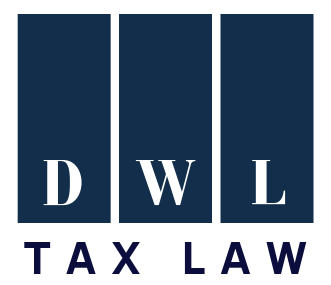Does Your Tax Attorney, CPA, Accountant, or Return Preparer Have a Conflict of Interest in Your Sales Tax or Income Tax Audit?

Ex-Navy Contractor Sentenced to Over 5 Years for Kickback Scheme and Tax Fraud
July 23, 2019
Owner of DC-Area Tax Preparation Business Pleads Guilty to Fraud
February 5, 2020
Does Your Tax Attorney, CPA, Accountant, or Tax Return Preparer Have a Conflict of Interest in Your Sales Tax or Income Tax Audit? A Tax Attorney Provides Guidance.
In cases where an individual is represented before the IRS in an audit, tax court case, or collections case, the IRS’s Circular 230 provides restrictions on conflicted individuals representing taxpayers. A conflict of interest occurs when a tax representative, whether that be a return preparer, CPA, or a lawyer or tax attorney, represents different clients whose interests diverge. In cases where an individual is represented before the IRS in an audit, tax court case, or collections case, the IRS’s Circular 230, in Section 10.29, provides restrictions on conflicted individuals representing taxpayers.
Conflict of Interest Rules Applicable to Tax Lawyers in Pasadena, Los Angeles, and California
For tax attorneys and any lawyer in California, the California Rules of Professional Conduct apply in several sections that impact potential conflict of interest determinations:
Rule 3-100 Confidential Information of a Client
Rule 3-300 Avoiding Interests Adverse to a Client
Rule 3-310 Avoiding the Representation of Adverse Interests
Rule 3-320 Relationship With Other Party’s Lawyer
Tax Court Attorneys or Representatives
Rule 201 of the Tax Court Rules of Practice and Procedure applies to all attorneys in Tax Court, or any representative admitted before the U.S. Tax Court. That rule requires practitioners before the court to follow the ABA Model Rules of Professional Conduct. Rules 1.7 through 1.11 of the ABA Model Rules of Professional Conduct pertain to conflicts of interest.
Because Tax Court Rule 201 follows the ABA odel rules, Tax Court practitioners will need to follow the stricter of the two rules. For example, Rule 3.7, entitled Lawyer As Witness, provides:
(a) A lawyer shall not act as advocate at a trial in which the lawyer is likely to be a necessary witness unless: (1) the testimony relates to an uncontested issue; (2) the testimony relates to the nature and value of legal services rendered in the case; or (3) disqualification of the lawyer would work substantial hardship on the client.
(b) A lawyer may act as advocate in a trial in which another lawyer in the lawyer’s firm is likely to be called as a witness unless precluded from doing so by Rule 1.7 or Rule 1.9.
However, under Rule 5-210 of the California rules, entitled Member as Witness:
A member shall not act as an advocate before a jury which will hear testimony from the member unless: (A) The testimony relates to an uncontested matter; or (B) The testimony relates to the nature and value of legal services rendered in the case; or (C) The member has the informed, written consent of the client. If the member represents the People or a governmental entity, the consent shall be obtained from the head of the office or a designee of the head of the office by which the member is employed and shall be consistent with principles of recusal.
Thus, while the California rule has an exception for consent, the Tax Court and the ABA does not. A practitioner must follow the Tax Court and ABA rule while practicing before the Tax Court.
Rule 1.7 of the ABA Model Rules
The ABA Model Rules, under Section 1.7, provides:
Conflicts of Interest: Current Clients –
(a) Except as provided in paragraph (b), a lawyer shall not represent a client if the representation involves a concurrent conflict of interest. A concurrent conflict of interest exists if:
(1) the representation of one client will be directly adverse to another client; or
(2) there is a significant risk that the representation of one or more clients will be materially limited by the lawyer’s responsibilities to another client. A former client or a third person or by a personal interest of the lawyer.
(b) Notwithstanding the existence of a concurrent conflict of interest under paragraph (a), a lawyer may represent a client if:
(1) the lawyer reasonably believes that the lawyer will be able to provide competent and diligent representation to each affected client;
(2) the representation is not prohibited by law;
(3) the representation does not involve the assertion of a claim by one client against another client represented by the lawyer in the same litigation or other proceeding before a tribunal; and (4) each affected client gives informed consent, confirmed in writing.
Section 10.29 of Circular 230
Circular 230, like the ethical rules for lawyers, also prohibits conflicted representation before the IRS except with consent and after full disclosure, stating:
No attorney, certified public accountant, or enrolled agent shall represent conflicting interests in his practice before the Internal Revenue Service, except by express consent of all directly interested parties after full disclosure has been made.
Tax Court Rule 24(g)
Rule 24 of the Tax Court’s Rules of Practice and Procedure covers appearance and representation by attorneys or others admitted to Tax Court. Subsection (g) of that rule, entitled Conflict of Interest, states:
If any counsel of record (1) was involved in planning or promoting a transaction or operating an entity that is connected to any issue in a case, (2) represents more than one person with differing interests with respect to any issue in a case, or (3) is a potential witness in a case, then such counsel must either secure the informed consent of the client (but only as to items (1) and (2)); withdraw from the case; or take whatever other steps are necessary to obviate a conflict of interest or other violation of the ABA Model Rules of Professional Conduct, and particularly Rules 1.7, 1.8 and 3.7 thereof. The Court may inquire into the circumstances of counsel’s employment in order to deter such violations. See Rule 201.
In real-life situations, the application of these rules can be complicated. There are a litany of cases exploring whether a conflict exists, whether the waiver obtained was sufficient, or whether the conflict is waivable. An independent attorney should be consulted any time a potential conflict is suspected and, especially, if a waiver is sought after the conflict is identified.
Daniel Layton, the author of this post, is a former IRS trial attorney and former federal tax prosecutor in Los Angeles’ U.S. Attorney’s Office.
Posted 12/28/2019 by Daniel Layton.

